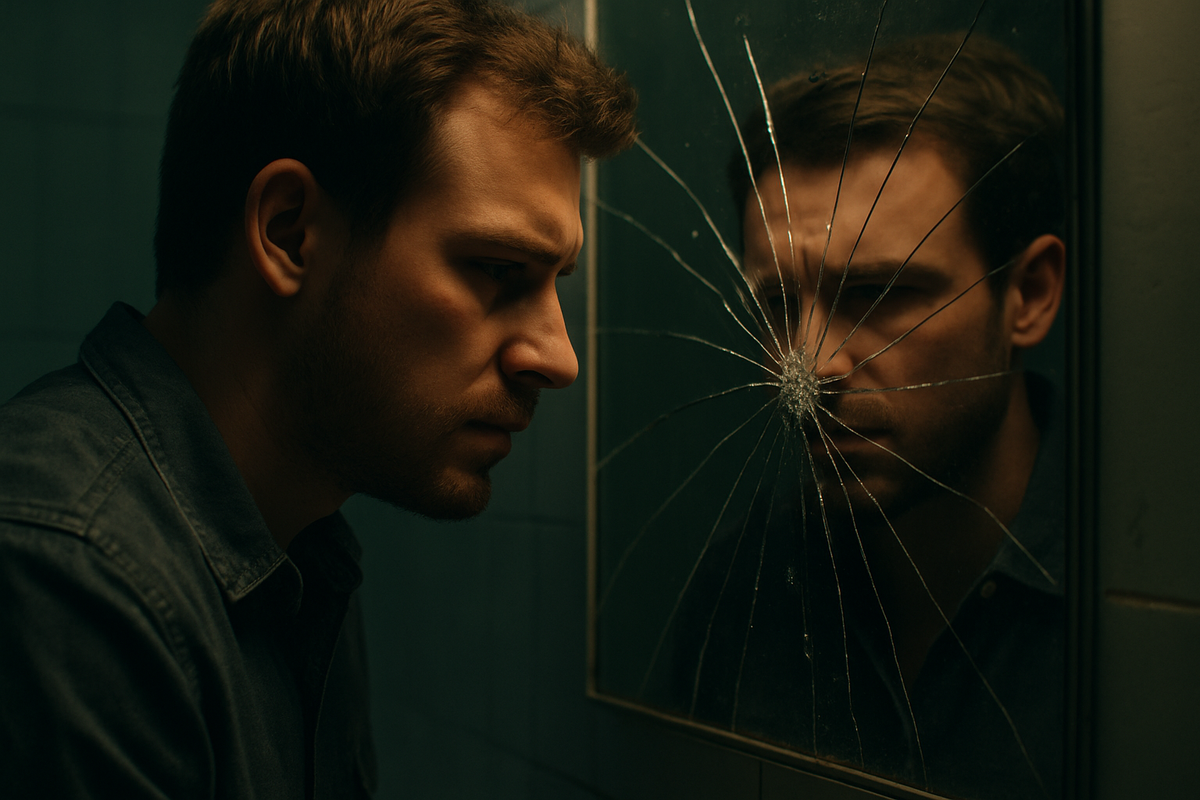"I’m the Problem": When the Mirror Talks Back
Morgan Wallen’s “I’m the Problem” isn’t just a breakup song—it’s a mirror on emotional immaturity. This article explores what separates avoidance from accountability and how Masonic tools like the plumb, trowel, and hoodwink can guide men toward real growth.

A Masonic Reflection on Emotional Development and the Courage to Change
Morgan Wallen’s “I’m the Problem” is more than a breakup anthem; it’s a sonic snapshot of emotional avoidance and stalled growth. Beneath the catchy melody is a character stuck, mistaking blame for insight, and self-pity for introspection. The bittersweet notes and intricate fingerpicking betray an existential despair that goes beyond blues and straight into martyrdom.
The lyrics present a portrait of a character stuck in a loop. He admits he's “the problem” but doesn’t mean it. Instead, he weaponizes the phrase—turning it into an accusation, a deflection, and a dare. Every verse is a retreat from real accountability, framed as introspection. It feels like self-awareness, but it’s not. It’s emotional sleight of hand, weaponized ignorance, and self loathing.
“You hate that when you look at me you halfway see yourself.”
This line hits harder than the rest—not because it's profound, but because it's almost honest. There’s a glimmer of truth here, a glimpse of what real growth might look like if he didn’t recoil from it immediately after.
What Emotional Immaturity Sounds Like
The song is textbook emotional avoidance dressed as insight:
- Inversion of blame: “If I’m so awful, why’d you stay?”
- Discrediting the other’s pain: “You’re Miss Never Do No Wrong.”
- Externalizing the cause: “If it’s the whiskey, why do you keep pulling it off the shelf?”
These aren’t questions in search of clarity; they're rhetorical traps designed to win a hypothetical argument and momentarily escape shame. They aren’t bids for connection. They’re exits. The real message? “It’s not just me, you’re broken too.”
That may be true. But in this moment? It’s irrelevant.
Emotional development doesn’t start with proving both people are flawed—it starts with owning your own side of the relationship, without waiting for your partner to do the same.
The Enlightened Path: What Accountability Actually Looks Like
A man on the path of growth will hear a line like “I’m the problem” and pause—not to argue it or analyze it for weaknesses, but to examine it.
A man with courage recognizes: your partner’s hurt is real even if their interpretation is imperfect. And in that pain lies a rare opportunity: the chance to connect with and through it.
Here’s what emotional maturity sounds like:
- “You’re hurt. Let me understand why.”
- “I may not agree, but I respect how this feels to you.”
- “What patterns of mine helped create this dynamic?”
- “Even if we both played a role, I’m willing to own mine.”
This isn’t weakness—it’s strength. It’s leadership. It’s the only path forward if we want relationships that aren’t just passionate, but sustainable.
Masonic Work
The masonic tools for work for this would be the hoodwink, plumb, trowel, and mineral/metallic objects.
- The hoodwink would ask, "What am I currently blind to?"
- The plumb would ask, "Am I being upright here in accordance with my best self"
- The trowel "How can I best express care in this situation?"
- The mineral/metallic objects demand a neither offensive nor defensive posture while in relationships of care and trust
Masonically, it's obvious that this character is running from the work. No foundation can be built on a relationship that refuses to see the truth.
Mirror Work
One of the hardest truths in development work is this: We attract partners who reveal the parts of us we’d rather not face. Sometimes, what we see in them is the very thing we haven't yet resolved in ourselves.
That’s what makes the lyric “you halfway see yourself” such a haunting line. It's almost an awakening. But it turns bitter fast because the singer isn’t ready to face what that reflection means.
The enlightened man doesn’t run from that mirror. He uses it. He watches for the defensive flare, the self-justifying story, the urge to say “But she...” and instead says:
“What if this pain is pointing at a part of me I haven’t yet healed?”
Accountability Isn’t the Same as Blame
Let’s be clear: taking accountability doesn’t mean taking all the blame. It means acknowledging where your choices, habits, and wounds have contributed to the present reality.
This kind of ownership isn’t martyrdom. It’s agency.
When you stop needing to prove you’re “not the only one at fault,” you become powerful. You become free.
Final Thought
Morgan Wallen’s song gives us an honest glimpse into the emotional cul-de-sac many men find themselves circling. And in that sense, it’s valuable. But if we stay in that loop always looking to be justified, always needing our partner to validate our pain we miss the invitation entirely: the call to change, to mature, to build something better.




